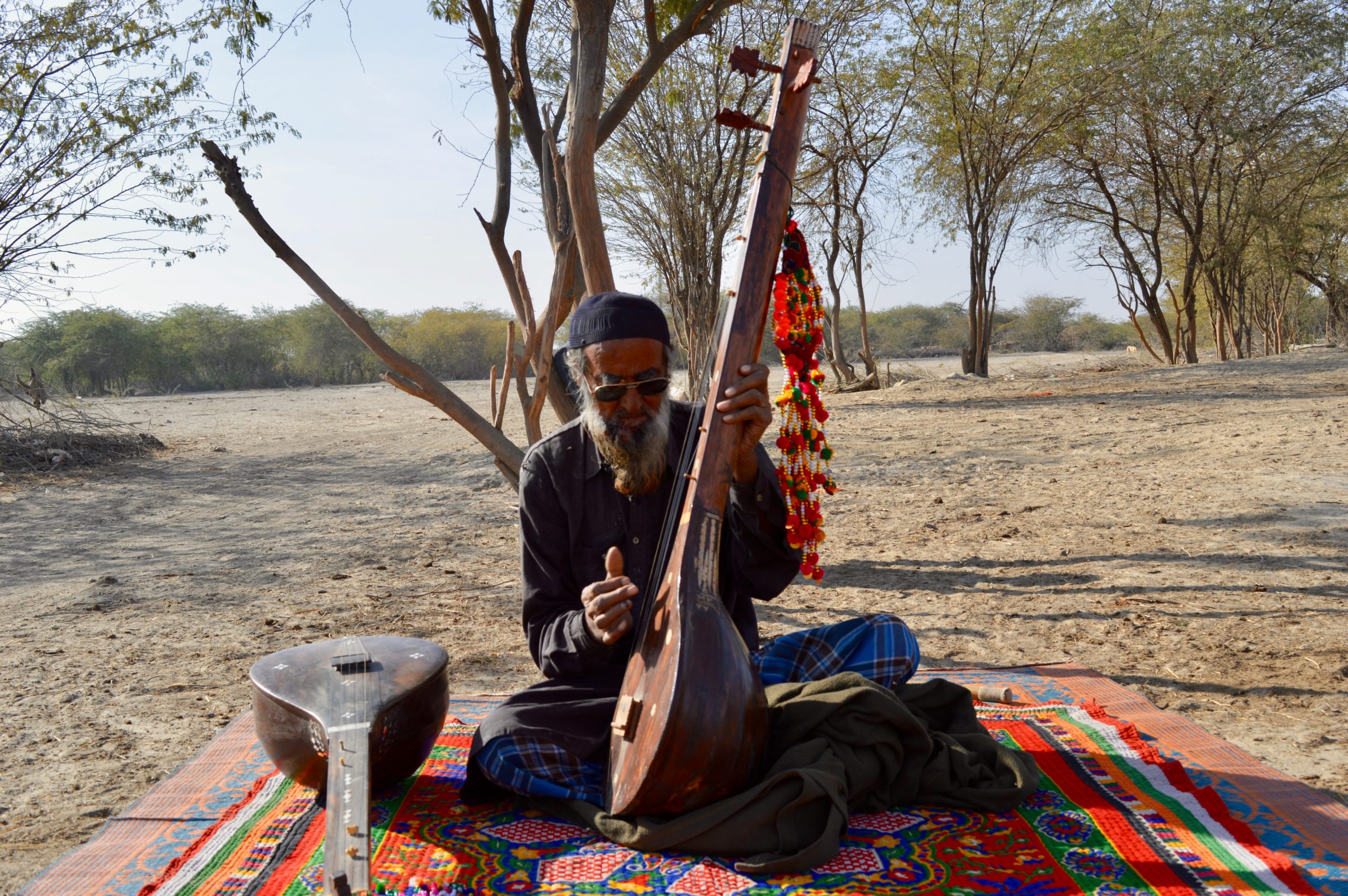
Waai music originated in Balochistan, Sindh, about 300 years ago during the time of the great Sufi saint Shah Abdul Latif Bhitai. The reciting of the Bhitai’s mystic poetry is called Waai. The Waai’s are composed in a dastaan (narratives) known as Risalo. Risalo means a ‘Message’.
Waai in total has 30 surs, narrating the journeys of seven female protagonists, namely – Marvi, Momal, Sassi, Noori, Sohni, Sorath and Lila – whose life were tormented with pain and hardships. The poetry is sung in praise of their courage, love, and integrity in the face of adversity.
These songs, sung by a group of highly trained Fakirs, are allegorical in nature. The fakirs sing these songs with soulfulness and pain narrating our souls’ evolution and its true yearnings through the stories and journeys of these 7 chief female characters.
It requires deep knowledge and understanding of Bhitai’s poetry and philosophy to be able to emote its profound meaning. Waai is distinctive than any other music form. The Waai performers render a unique fakiri hue to the Waai poetry.
The fakirs of Bhitai perform Waai on Thursday nights – Jumme ki Raat – the night before Jummah, Friday. This ritual is observed even today.
The artists who perform Waai are descendants of those fakirs who learned Waai directly from Shah Abdul Latif Bhitai during its formative years. This knowledge passed on from generation to generation orally. But, today only 3 artists are left who can perform Waai: Meetha Khan, Sumar Kadu, Jaan Mamad. They come from Bagadiya village of Banni grasslands, Kachchh. They belong to Jat community – the traditional nomadic pastoralists, also known as ‘Maldhari’ locally.